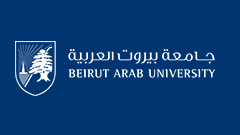Keywords
Landfill, Waste, Energy, Eco-Friendly, Environment, Sustainable Development.
Disciplines
Architectural Engineering | Architecture | Environmental Design
Abstract
Waste to Energy (W to E) minimize the amount of waste sent to landfill, which also reduces negative impacts on the environment. This problem has been a common occurrence since the beginning of time. Waste to Energy will assist in the creation of a low-carbon society. Currently, the challenge behind reaching Eco-friendly space is a result of the continuity of incineration and landfill uncontrolled Municipal Solid waste on slopes and seashore. This environmental disaster as worldwide landfill is oversaturated and can collapse at any moment and cause dangerous damage to the environment. The average trash production increased phenomenally worldwide, resulting in numerous environmental and health concerns. The landfill's greatest height point reached 30 meters, which is much above the minimum-engineered height. Renewable Energy refers to a variety of treatment technologies that convert waste into sustainable development like electricity, heat, fuel or other usable material, as well as a variety of waste. Renewable Energy is divided into four categories: thermal, mechanical, thermochemical and biochemical. Therefore, this research aims to establish guidelines to Reuse the Landfills and create Eco-Friendly Spaces, explore the potential of landfills in reused as new recreational Eco-friendly spaces and to establish Renewable energy.
To achieve this aim, the paper will follow a scientific methodology, starting with a literature review highlighting the definition of Waste to Energy, understanding its causes and types, then focus on different methods applying for this disaster and its relation to the city. As focused case study, this paper summarizes the methodology for applying Renewable Energy and transforming the mountain of garbage into entertainment and amusement park. As a conclusion, this research will analyze the effectiveness of Waste to Energy and how it functions strategically in order to improve the quality of life.
Author ORCID Identifier
Maya Maasarani- https://orcid.org/0000-0002-8681-7518
Ayman Afify -https://orcid.org/0000-0001-7371-3472
Hiba Mohsen- https://orcid.org/0000-0002-0682-0785
Maged Youssef- https://orcid.org/0000-0002-9923-6659
Recommended Citation
Maasarani, Maya; Afify, Ayman; Mohsen, Hiba; and Youssef, Maged
(2022)
"FROM WASTE TO ENERGY: REUSE OF LANDFILLS TO CREATE ECO-FRIENDLY SPACES,"
BAU Journal - Creative Sustainable Development: Vol. 3:
Iss.
2, Article 7.
DOI: https://doi.org/10.54729/TFAN8132
ISSN
2789-8334

